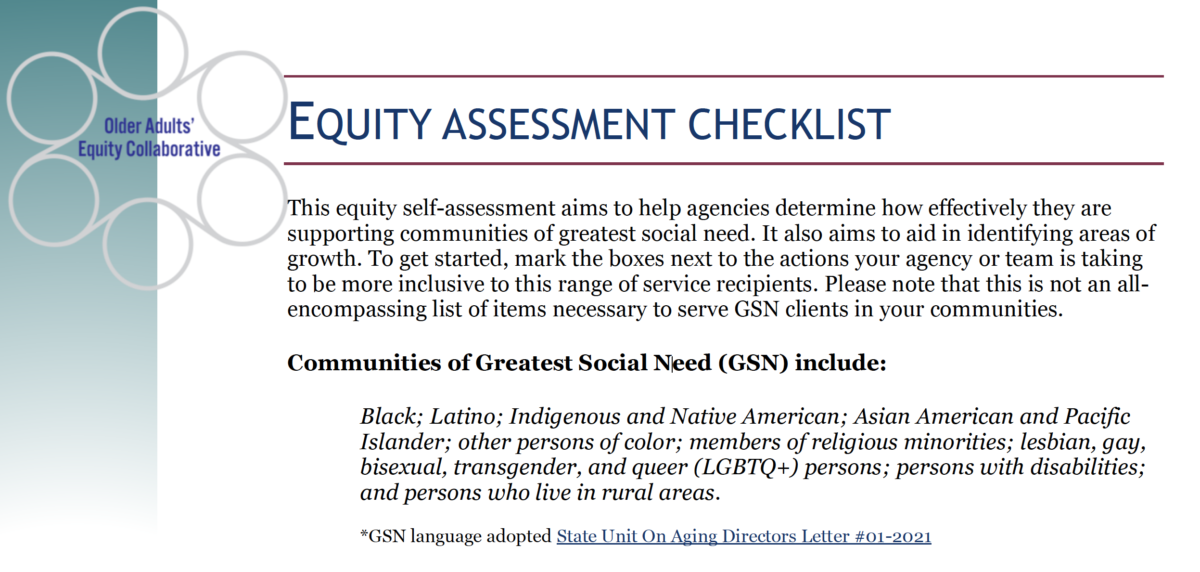Read More
Since 2020, the Administration for Community Living (ACL)-funded Older Adults’ Equity Collaborative (OAEC) has worked to elevate cultural competence in the aging network through active engagement with professionals, caregivers, and older adults. This capstone event will reflect on the accomplishments of this collaborative by introducing attendees to the resources and tools generated by the OAEC and look ahead by stimulating conversation on the future of equity in the aging network.
Read More
NCBA hosts a webinar detailing the main types of cardiovascular disease, the accompanying risk factors, and the best practices for prevention.
Read More

This equity self-assessment aims to help agencies determine how effectively they are supporting communities of greatest social need (GSN). It also aims to aid in identifying areas of growth. To get started, mark the boxes next to the actions your agency or team is taking to be more inclusive to this range of service recipients.
Read More
On July 12, 2022, NYAM's Center for Healthy Aging hosted a panel discussion on how patients, providers, and payors can ensure an equitable telehealth landscape that is attuned to the strengths and needs of the 65+ population. As telemedicine becomes increasingly ubiquitous in the healthcare space, it is critical that health and digital equity remain front-and-center to ensure that the benefits of technology are afforded to diverse older adult populations.
Read More
Social isolation is defined as a lack of social connections. Social isolation can lead to loneliness in some people, while others can feel lonely without being socially isolated, according to the Centers for Disease Control and Prevention (CDC). These fact sheets provide insight and best practices for addressing social isolation among American Indian Elders.
Read More
On January 4, 2011, the National Alzheimer's Project Act (NAPA) (Public Law 111-375) was signed into law. The Act defines "Alzheimer's" as Alzheimer's disease and Alzheimer’s disease-related dementias (AD/ADRD) and requires the Secretary of the U.S. Department of Health and Human Services (HHS) to establish the National Alzheimer's Project to:
- Create and maintain an integrated National Plan to overcome Alzheimer's disease;
- Coordinate Alzheimer's disease research and services across all federal agencies;
- Accelerate the development of treatments that would prevent, halt, or reverse the course of Alzheimer's disease;
- Improve early diagnosis and coordination of care and treatment of Alzheimer's disease;
- Decrease disparities in Alzheimer's disease for racial and ethnic minority populations that are at higher risk for Alzheimer's disease; and,
- Coordinate with international bodies to fight Alzheimer's disease globally.
The law also establishes the Advisory Council on Alzheimer's Research, Care, and Services (Advisory Council) and requires the Secretary of HHS, in collaboration with the Advisory Council, to create and maintain a National Plan to overcome AD/ADRD.
Read More